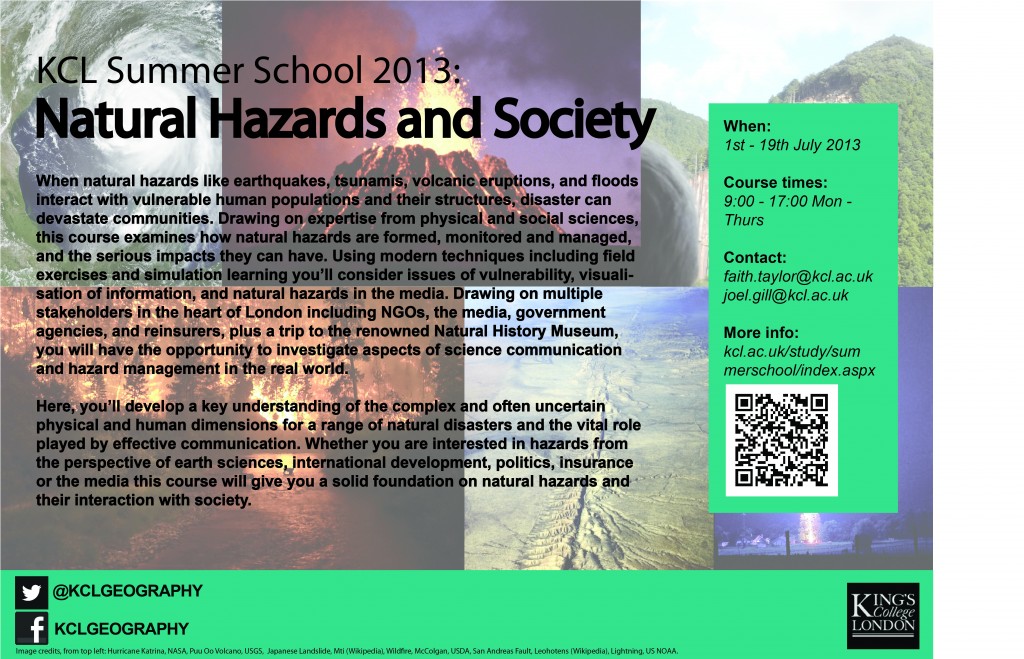The study of natural hazards, such as earthquakes and volcanic eruptions, are an important part of geoscience courses. However a thorough understanding of how and why they impact society requires the study of a much broader range of topics. Similarly, the study of social sciences gives us an understanding of the origins and development of vulnerability, but this knowledge must be combined with an understanding of the science behind hazard processes in order to effectively mitigate against disasters.
In the summer of 2013, King’s College London (KCL), will be offering a three week Summer School (1st-19th July) that will draw on aspects of both physical and social science to explore the topic of Natural Hazards and Society. The course is particularly suited to undergraduate students from both physical and social science backgrounds with an interest in natural hazards, however is open to students from all disciplines with an interest in this area. Whether from the perspective of earth sciences, international development, politics, insurance or the media, this course will give you a solid foundation on natural hazards and their interaction with society.
This course will help you to:
– Develop an understanding of the physical and human dimensions for a range of natural hazards.
– Identify key parties involved in disaster risk reduction and emergency response.
– Recognise the significance of appropriate communication to a range of audiences.
– Understand that disasters in the real world are a complex mix of human and physical factors which have varying degrees of uncertainty.
– Gain an overview of the data and tools available and apply these in an independent study.
– Use novel and state-of-the-art techniques to obtain and disseminate information.
The course will be organised and taught by two doctoral researchers from KCL’s Earth and Environmental Dynamics Research Group, in the Department of Geography, Faith Taylor (GfGD’s University Groups Officer) and Joel Gill (GfGD’s National Director and Founder). Their experience and interests span multiple areas of natural hazards and vulnerability research, including a range of desk based approaches and field work in four continents. They bring a range of teaching and demonstrating experience, including most recently as class teachers on the Environment: Science and Society module at the London School of Economics and Political Science.
Many students get credit for the summer courses taken at KCL. We’d recommend approaching your home university before applying to find out whether they accept this course for credit (a three-week course is approximately equivalent to 4 US credits or 7.5 ECTS, for instance).
Full details of the course, associated costs, and application information can be found on the website. Please note that places are limited and the application deadline is 15th May 2013. Informal questions can either be directed to Joel Gill or the KCL Summer School Office.

